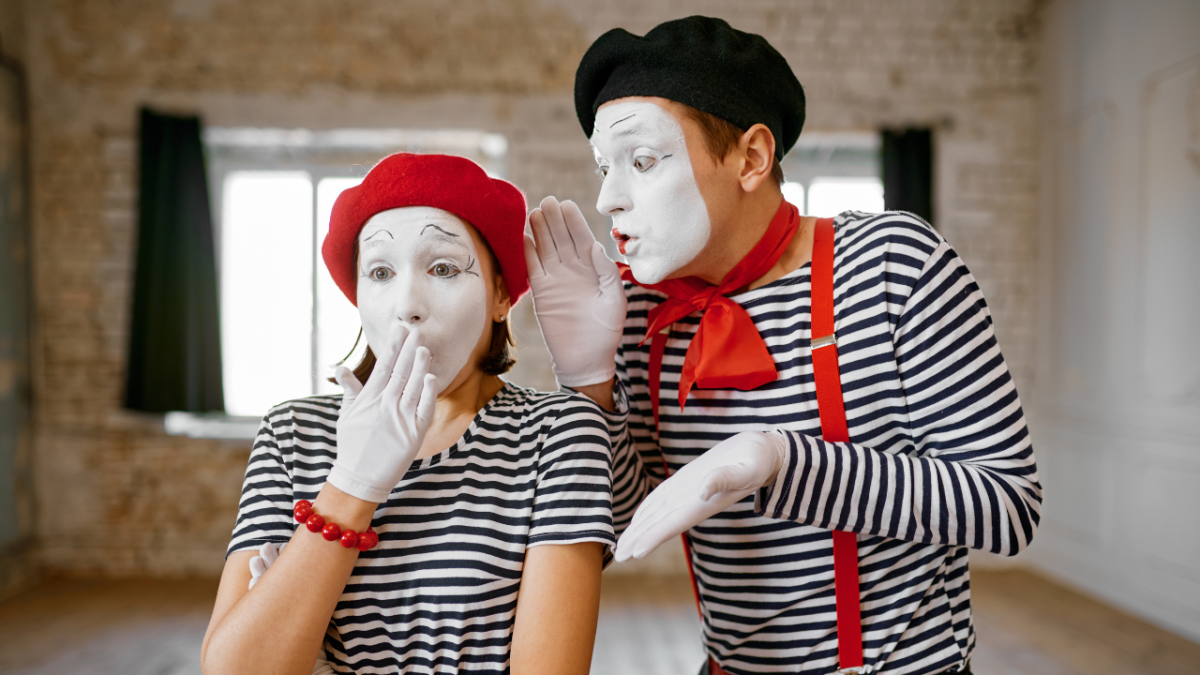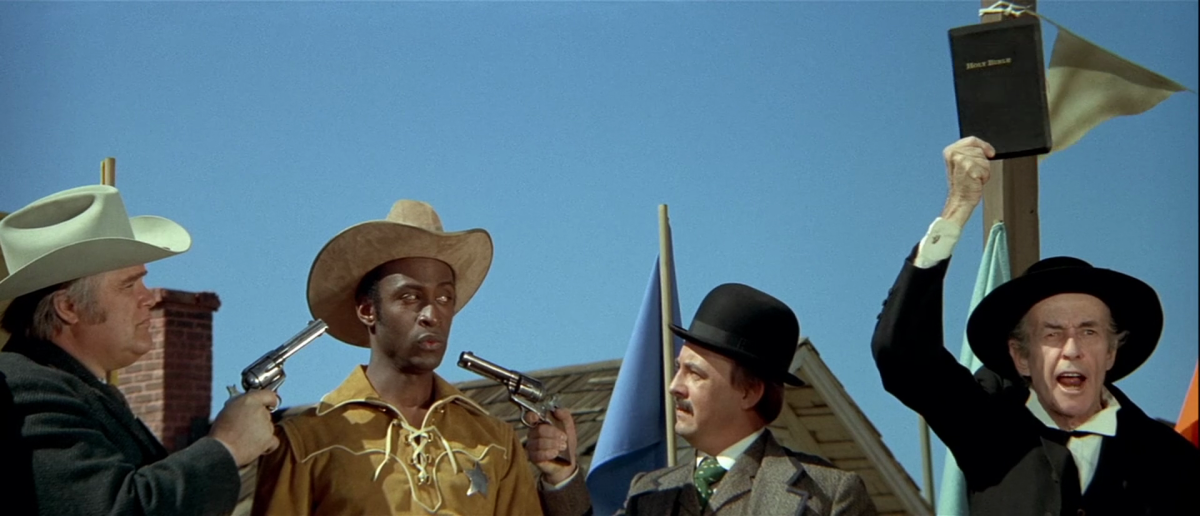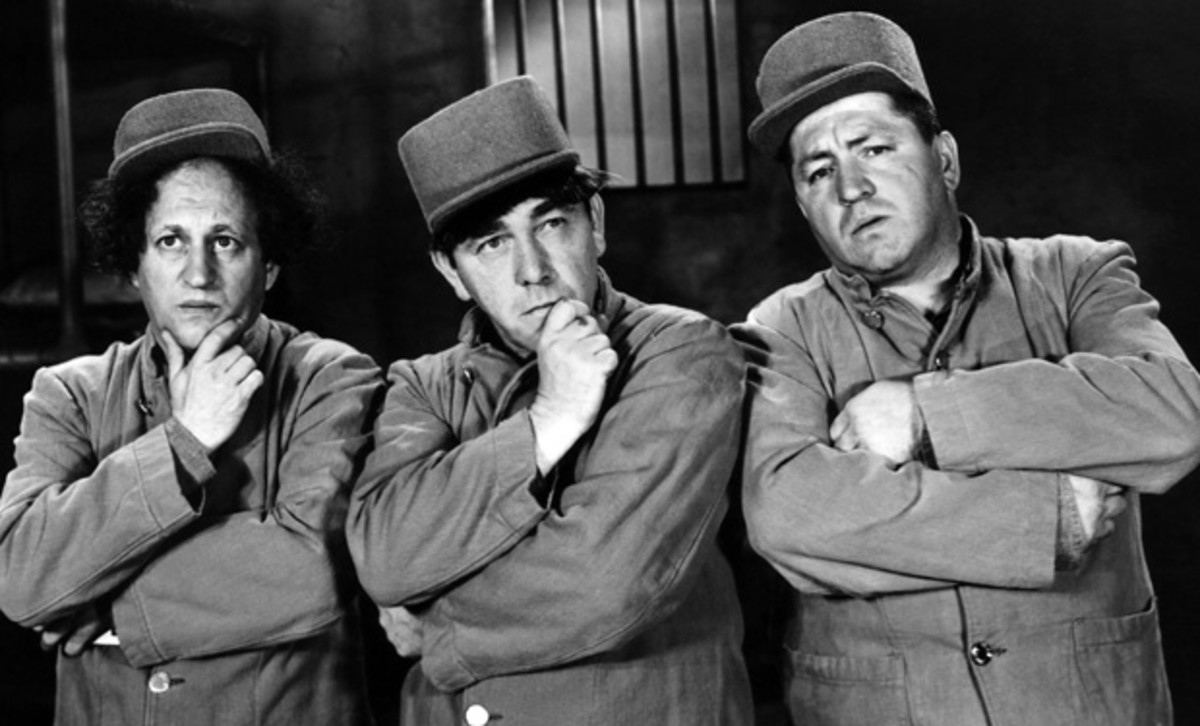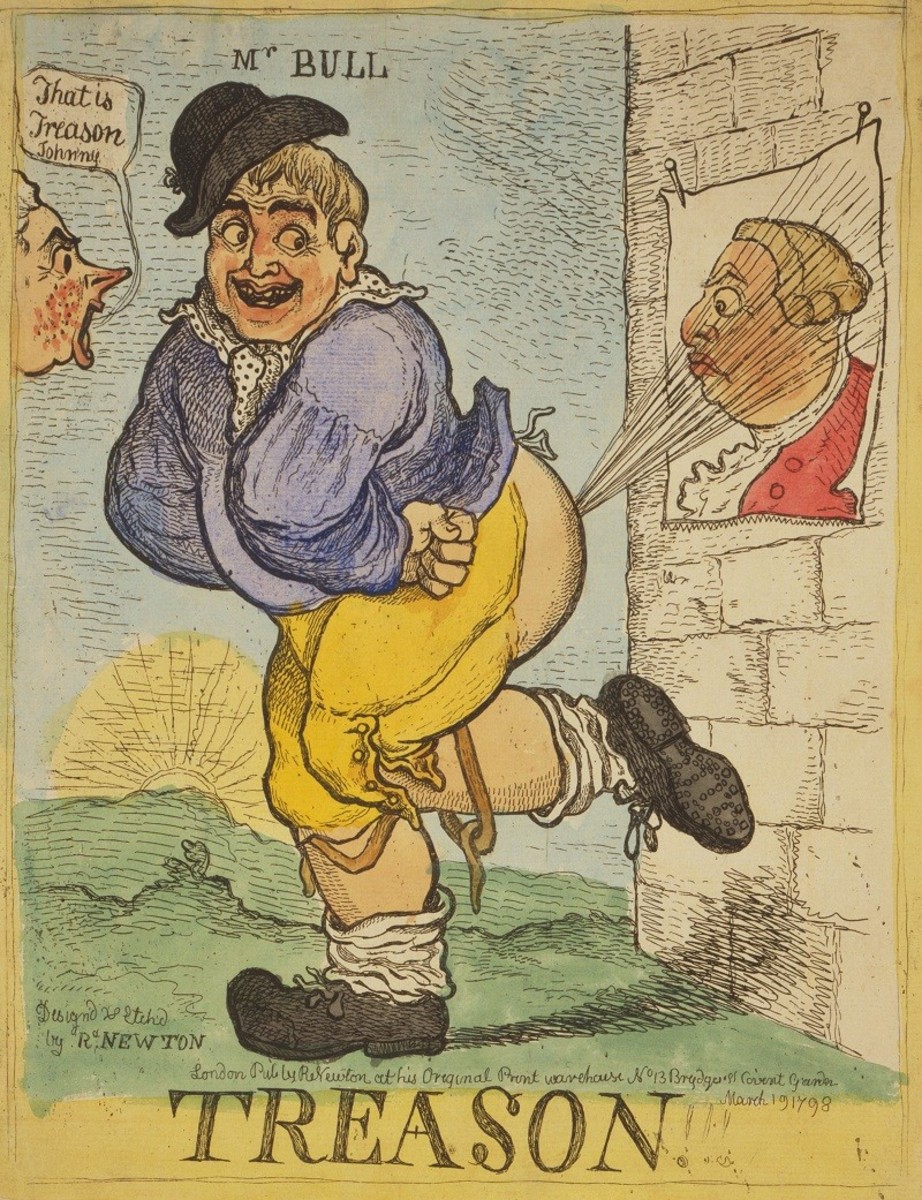The Identity Thief: What is Authentic Comedy?

The Movie
The Identity Thief, of 2013, is a "comedy" film starring Melissa McCarthy and Jason Bateman.
I am not going to offer yet another "review" of the film. In 2018 that is hardly necessary. I'm sure I can say nothing about the film that has not already been said. I only lead with this because I saw it a few weeks ago, having borrowed it for free from my local public library.
Now, I put the word "comedy" in quotations, in referring to the movie, because I do not consider it an authentic comedy.
Now, don't get me wrong. The film is, in my opinion, perfectly fine for what it is. I would give it a 6, perhaps 6.5 out of 10. I just would not call The Identity Thief an authentic comedy.
Believe me, I do not say this is a bitter, curmudgeonly way. My idea that this film, and most others of its ilk, are not authentic comedies is a clinical judgment.
Allow me to explain.
Let's see if we can sort something out at the very outset.
Confining our examination to cinema, I ask you: What is comedy?
Most of us would probably say that it is a film in which likeable characters have exasperating (for them; "funny" for us the viewers) adventures, which feature pratfalls and gags along the way, which make us laugh. There is supposed to be a happy ending, we would add, and the main character should show some character growth (an "arc"), in that he is not quite the same person as he was at the start. He has changed for the better because he has "learned" something.
I'm sure some of you, reading this, might offer "The Identity Thief," as Exhibit A.
But there is a problem.
The definition I have just offered is obviously insufficient.
Why?
Because we know of the existence of something called the Dark Comedy. This is a film that is "serious," in that its tone is not played laughs, per se. We are not generally supposed to laugh out loud (lol) at anything we see. Nevertheless, such films are most emphatically comedies.
In an interview with fellow director, Robert Rodriguez, Quentin Tarantino characterized many of his own films as "comedies."
Off the top of my head, I would say that Pulp Fiction has many elements of a dark comedy. Remember the very first scene of the movie, in which a pair of small-time hold-up thieves (played by Amanda Plummer and Tim Roth) were discussing their career options?
Tim Roth says no more liquor stores and no more gas stations. The hazard of getting one's head blown off is just far too great from the perspective hold-up thief. In that case, what are they to do with themselves, wondered Amanda Plummer, "get day jobs"?
But actually working for a living is far, far too extreme a solution for Mr. Roth. No, what he was thinking is that they could rob restaurants and coffee shops. Restaurants were hidden thieves' gold, as far as Tim Roth was concerned, and much, much safer.
The reasoning went like this: Folks looking to have their coffee and Denver omelet, aren't looking for any trouble. Amanda Plummer warms up to the idea, agreeing that "you could probably cut down on the hero factor with a place like this."
If you saw the movie, you know how their story ends: They leave the restaurant with the tails between their legs, knowing that they had come closer than they ever had to losing their lives.
But restaurants are supposed to be safe to rob. The duo were nearly killed in attempting to rob one.
That is the joke! You might even call it ironic.
Remember, we are confining our examination to movies.
Question: Does a movie have to make us laugh out loud (or make the attempt) to qualify as a comedy?
Answer: Clearly not, as the existence of the "dark comedy" shows.
Question: Then what do the laugh out loud (or attempted laugh out loud) comedies and dark comedies have in common?
Answer: That is a difficult question. I believe the two forms should have something in common, but the way Hollywood tends to structure the former, they don't --- even though they should.
Question: What in Sam Hill does all of that "jibber jabber" mean?
Let me present an example of a laugh out loud (or attempted laugh out loud) movie that I consider to be an authentic comedy.
But before I do that, let me pose this question:
What is a joke? What makes it funny? What are its constituent parts, that, when delivered well, makes us laugh? When a professional comedian on stage makes a joke, what is he doing?
I think the basic formula goes like this: A respectable expectation is set up, which is then undermined in a clever way, which creates a cognitive dissonance in the mind in the hearer of the joke ----- which we relieve by laughing.
When I use the word "respectable," here, I am not referring the dictionary definition of that word. My meaning will become clear when I give my example of the authentic comedy movie ---- which I will do now.
I give you: Last of the Red Hot Lovers (1972) based on the play by Neil Simon.
Last of the Red Hot Lovers is a film which is meant to evoke the physical response of laughing, or at least, perhaps, smiling on the verge of laughing. I consider it to be an authentic comedy, in that it, the story as a whole, meets my definition of a joke.
The film sets up the "respectable" expectation of a middle-aged restaurateur (played by Alan Arkin) who intends to have an extramarital affair, to spice up what he sees as his boring, routine, hum-drum life --- make a cherished, precious memory that will sustain him for the rest of his predictable life.
Pretty straightforward, right?
He sets up rendezvouses with three different women (one after the other in succession) in his mother's apartment (once a week his mother is out of the home for the entire day).
In short he fails, strikes out, one, two, three. He fails to commit adultery with any of the three women who come to the apartment. We don't need to go into the reasons here, but the pratfalls and gags emerge organically to story, as his desperation to cheat on his wife grows.
The film ends with Alan Arkin in a phone booth (because its 1972, remember), calling up his wife, trying to get her to meet with him for a "booty call" in his mother's apartment.
We fade out with Alan Arkin experiencing extreme difficulty in convincing his wife to come over. Every indication is that he will not be able to persuade his wife to come to his mother's apartment to have sex with him.
That's the joke. Get it?
Not only does Alan Arkin fail to cheat on his wife (though certainly not for the lack of his trying), but he cannot even get "laid" by his own wife --- which starts to shed some light on why he tried to go outside of the marriage in the first place.
The spark is gone, if there ever was a spark between Alan Arkin's character and his wife.
Does that make sense? This would-be, failed adulterer cannot even get laid by his own wife!
I will mention, here, that this is not a happy ending.
As you know, the word funny, depending on the inflection of the voice, means either amusing or ironic.
You know, now I think we're getting somewhere. What the definition of a "joke," I offered and the definition of "funny," I have just offered here has in common is: irony.
And what is "irony" but the subversion of a "respectable expectation" in a clever, unexpected way?
You know, I get the feeling that we Americans, as a culture, are addicted to the idea that a show that is a "comedy," whether on the small or big screen, must make us Laugh Out Loud.
Question: Why is that?
Answer: I think it has something to do with the device of the automated laugh track on television sitcoms.
There is a Slovenian philosopher called Slavoj Zizek, who says that the purpose of the laugh track is to, astonishingly, laugh for us, to make us feel relieved as though we have laughed.
Question: Why on Earth would we need automation to "laugh for us."
Answer: The first level, I think, is that the purpose of the laugh track is to grab the viewer's attention as she is flipping channels, looking for something to watch, after coming home from a long, hard day's work and/or other errands. She hears the "laughter" and thinks to herself: Oh, something light. A comedy. "I" could use a laugh.
Question: What else have you got?
Answer: Well, it may very well be that the sitcom laugh track acts as a tacit, indirect, perhaps even unconscious, acknowledgement of the fact that --- in life, there are very, very few things of a purely comedic value that in and of themselves actually make us Laugh Out Loud.
When we most often Laugh Out Loud, isn't it when we are enjoying the congenial companionship of friends and family and strangers whose acquaintance we are pleased to make? We laugh because we are enjoying the people we are with, overall --- not, strictly speaking, due to the pure comedic value of anything they have said.
If that is true, then we might release ourselves from the notion that a movie that is a "comedy" necessarily has to make us laugh out loud.
Perhaps all that is needed for a movie to be an "authentic comedy" is irony; and that any, actual physical laughs it generates from us are merely icing on the cake, as it were, and wholly incidental and organic to the fundamentally "funny" overall story.
There is one more part to this.
Tell me: When a professional stand-up comedian tells a joke on stage --- in the form of a set up and "punch line" or a story and its conclusion --- is the resolution usually, generally a "happy" one?
Do comedians on stage usually tell "stories" with "happy endings"?
The answer is no because the happy ending is usually not funny, in that it is usually not interesting or ironic; the happy ending does not usually serve the necessary function of undermining a "respectable expectation" in a clever or interesting way. Happy endings usually do not make us laugh.
Having worked all of this out, what can we say about a movie that we would call an "authentic comedy"?
A movie that is an authentic comedy should never have a happy ending.
Contrary to the customary rules of cinematic storytelling, in a comedy there should never be "character growth" or a "character arc." Counter intuitively, the protagonist should remain exactly the same person he was, at the end of the movie (or journey), that he was at the start.
This is because the fulfillment of the "respectable expectation" is not inherently "funny." It is sentimental. There is nothing wrong with sentimentality; just understand that feel-good sentimentality is not the same as authentic comedy.
There is one more loose end to tie up.
Question: How does the sitcom automated laugh track "laugh for us," making us feel "relieved as though we have laughed"?
Answer: By making us feel that we have laughed in the congenial companionship with people we think we know well and care about --- even if it is an artificial substitute for the genuine article, it is, perhaps, "better than nothing." And, when we come home at 5 or 6 in the evening, tired and worn out, we do not really pay close attention to what the characters, on the sitcoms, are actually doing and saying; the "laughter" tells us that "we" are all having a good time.
Now, let us return to the movie in question: Identity Thief starring Melissa McCarthy and Jason Bateman.
As anyone who watches movies on a regular basis knows, when Jason Bateman appears in a film, he, almost invariably plays a good guy, who is a good guy at the beginning of the movie, and remains a good guy (if not a slightly better guy) at the end of the movie. We find him trying to do something good or redemptive or restorative in some way; and he almost invariably succeeds at doing said good or redemptive or restorative thing.
Now, the set up and fulfillment of the "respectable expectation" is not inherently funny, is it?
The same people who have heard of Jason Bateman, should also know who Melissa McCarthy is. She, most often in movies, similarly plays a good woman, who is a good woman at the start of the film, and remains a good woman (if not a slightly better version) at the end of the film. We most often find her, too, trying to do something good or redemptive or restorative in some way; and she, again, almost invariably succeeds at doing said good or redemptive or restorative thing.
Her set up and fulfillment of the "respectable expectation" is, also, not inherently funny, is it?
Now, it is true that Melissa McCarthy's characters tend to have something more of an "edge" to them than Jason Bateman's; but the result for her is always the same, is it not?
Having said all of that, however, let me hasten to add that I enjoyed watching this film. It is a reasonably pleasant way to spend two hours. The enjoyment I got out of it was that of the artificial substitute for congenial companionship of family and friends: in the sense that Melissa McCarthy and Jason Bateman, as per usual, played likable, sympathetic characters, whom I cared about. I felt like "we" all had had a pleasant little romp together.
I just would not call the film an "authentic comedy."
How "The Identity Thief" Could Have Been Rendered As An Authentic Comedy
Not that anyone asked, but let me give you my thoughts about how this movie could have been rendered as, what I call, an "authentic comedy."
Let's say that Jason Bateman (because there is nothing wrong with Jason Bateman) played the same role, as some good guy corporate type, whose identity gets stolen.
Now, the first alteration that should be made is this: He should not co-star with someone anywhere near as well known as Melissa McCarthy. Indeed, there should be no co-star.
We should see him trying to recover his identity, restore his good name, in terms of credit and other things. But as the story moves along he should find out the truth about his own life. In other words, the very process by which he tries to recover his identity, opens a window into the true nature of his life: perhaps he finds out, to his utter astonishment, that his wife has been carrying on a long-term affair with another... woman, for example (its not that she is a closeted lesbian, but rather a closeted bi-sexual); suppose he, somehow, finds out that she had an abortion, years ago, without even having told him that she was pregnant; perhaps he finds out that his wife had taken out a ten million dollar life insurance policy on him, again, to his utter astonishment and ignorance; suppose he finds out that she did not "lose" her wedding ring, as she had previously claimed, but had pawned it to buy one of her lovers a gift.
Let's really pour it on. Suppose he finds out that one of his children is not biologically "his."
You get the idea.
Here is the joke. The totality of his discoveries should naturally pose the following questions to him: Is this a life he wants to get back? Is he better off letting the person who stole his identity, whoever that might be, have it?
If the answers to the questions are "no," and "yes," respectively, then what should he do? Should he fake his own death, disappear, and create a new identity? But what about the children? Should he just leave them in the hands of such a duplicitous, treacherous woman? Is she anything other than a loving, responsible mother to them?
Should he take out a twenty million dollar policy on his wife, and then arrange a little "accident" for her? Indeed, wouldn't it be funny if he could take out the life insurance policy on his wife, and then hire her lover to off her (a la Michael Douglas in The Perfect Murder)?
Or, suppose he gets he recovers his identity and goes back to his life, because it is the only one he knows. However, because he now knows about the secret ten million dollar insurance policy on his life, he is on the alert for assassination attempts, either coming from his wife, her lover, or some other quarter.
This would be a good time to learn about his brilliant proficiency at the game of chess: the ultimate game of tactics, strategy, and anticipation. This would be a good time to learn about his very prolific, championship amateur career; and that he had actually been named a chess grandmaster at the tender age of twenty-five.
We could see him making the decision to activate this analytical part of his mind, and put it to use in thwarting the homicidal designs of his wife. We could see him constantly side-stepping her attempts to poison him, cause him to fatally crash his car by tampering with its brakes, get "mugged" with fatal results.
The movie could end with his turning the tables on his wife, and actually managing to turn on of her own plots against her --- resulting in her "accidental" death.
Now that's funny!
And just to make things even more convoluted: Wouldn't it be even funnier if Jason Bateman's wife were also cheating on her female lover with --- wait for it --- another... man? Wouldn't it be funny if Jason Bateman's wife's female lover were also a bi-sexual?
Do you see where I'm going with this? Wouldn't it be funny if Jason Bateman and his wife's female, bi-sexual lover got together romantically, perhaps even got married? Of course, they would have the children, the house, and all of those lovely millions of dollars!
Thank you so much for reading!








